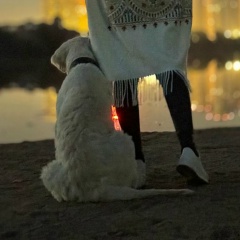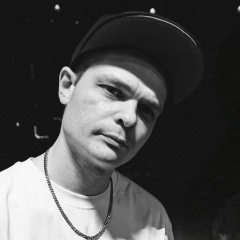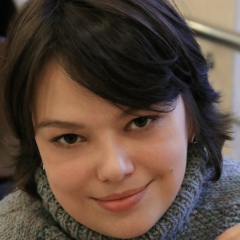Вчера на канале "365 дней ТВ" была передача "Час истины", посвященная Украине. Один из ее участников, К. А. Кочегаров - действительно специалист по истории Украины, и это было видно по его разговору. Но вот другой, С. В. Перевезенцев, никаким специалистом по Украине не является. Вот полный список его публикаций: https://istina.msu.ru/profile/Serp1380/#articles Среди них я нашел только две, связанные с Украиной ("Линия фронта - прошлое: Украина на исторических баррикадах" и "Россия. Украина. Беларусь. Политика против истории"). Первая опубликована в политологическом журнале и посвящена интерпретации истории украинскими политиками после 1991 г. (https://globalaffairs.ru/number/Liniya-fronta--proshloe-19486), вторая вообще вышла в "православном журнале для родителей". Есть, правда, еще работы по домонгольской Киевской Руси, но, во всяком случае, Украину после XIII в. этот человек всерьез не изучал, а передача-то была в основном про XVI-XVII века!
В целом С. В. Перевезенцев занимается отечественной, великорусской историей и, судя по всему, является носителем националистически- имперских взглядов (у него много работ типа "О смысле империи", "Величие русской души", "Святорусское царство", "Великая Россия" и т. п.) Вот именно поэтому его, видимо, и пригласили - чтобы он представил не точку зрения специалиста, а великорусско-имерскую точку зрения на историю Украины.
Отсюда, например, его слова о том, что в XVI-XVII вв. "поляки относились к украинцам как к животным". В "Истории Украины" (СПб., 2016) читаем другое: "После создания Речи Посполитой права польской шляхты ("рыцарства", привилегии которых основывались "на пролитой крови" за короля) были распространены и на украинскую шляхту", причем эти права включали в себя то, что "любой шляхтич имел право участвовать в выборах короля и даже - потенциально им стать" (с. 101-102). Это что, "отношение как к животным"? Автор этих слов - Т. Г. Таирова-Яковлева, автор работ "Elite women in the Ukrainian hetmanate", "Инкорпорация: Россия и Украина после Переяславской рады", "Панегирическое искусство украинского барокко на примере орации В. Ломиковского" и многих других подобных (https://elibrary.ru/author_items.asp?authorid=618584&pubrole=100&show_refs=1&show_option=0), т. е. действительный специалист по истории Украины.
Конечно, в отношениях поляков и украинцев были и другие, темные стороны, о чем пишет и Т. Г. Таирова-Яковлева, но "имперец" явно перегибает палку, и это лишь один из возможных примеров. Почему Кочегаров его не поправлял, не знаю (зная, как делаются передачи "с участием ученых", можно допустить, что поправки просто вырезали). Советую относиться ко всему, что говорит об Украине Перевезенцев, с большой осторожностью и вообще не доверять каждому, кто позиционируется на телевидении как "ученый", а проверять, компетентен ли он в том, о чем рассказывает.
В целом С. В. Перевезенцев занимается отечественной, великорусской историей и, судя по всему, является носителем националистически- имперских взглядов (у него много работ типа "О смысле империи", "Величие русской души", "Святорусское царство", "Великая Россия" и т. п.) Вот именно поэтому его, видимо, и пригласили - чтобы он представил не точку зрения специалиста, а великорусско-имерскую точку зрения на историю Украины.
Отсюда, например, его слова о том, что в XVI-XVII вв. "поляки относились к украинцам как к животным". В "Истории Украины" (СПб., 2016) читаем другое: "После создания Речи Посполитой права польской шляхты ("рыцарства", привилегии которых основывались "на пролитой крови" за короля) были распространены и на украинскую шляхту", причем эти права включали в себя то, что "любой шляхтич имел право участвовать в выборах короля и даже - потенциально им стать" (с. 101-102). Это что, "отношение как к животным"? Автор этих слов - Т. Г. Таирова-Яковлева, автор работ "Elite women in the Ukrainian hetmanate", "Инкорпорация: Россия и Украина после Переяславской рады", "Панегирическое искусство украинского барокко на примере орации В. Ломиковского" и многих других подобных (https://elibrary.ru/author_items.asp?authorid=618584&pubrole=100&show_refs=1&show_option=0), т. е. действительный специалист по истории Украины.
Конечно, в отношениях поляков и украинцев были и другие, темные стороны, о чем пишет и Т. Г. Таирова-Яковлева, но "имперец" явно перегибает палку, и это лишь один из возможных примеров. Почему Кочегаров его не поправлял, не знаю (зная, как делаются передачи "с участием ученых", можно допустить, что поправки просто вырезали). Советую относиться ко всему, что говорит об Украине Перевезенцев, с большой осторожностью и вообще не доверять каждому, кто позиционируется на телевидении как "ученый", а проверять, компетентен ли он в том, о чем рассказывает.
Yesterday, on the 365 Days of TV channel, there was a program called Hour of Truth dedicated to Ukraine. One of its participants, K. A. Kochegarov, is indeed a specialist in the history of Ukraine, and this was evident from his conversation. But the other, S. V. Perevezentsev, is no specialist in Ukraine. Here is a complete list of his publications: https://istina.msu.ru/profile/Serp1380/#articles Among them, I found only two related to Ukraine ("Front line - the past: Ukraine on historical barricades" and "Russia. Ukraine. Belarus. Politics versus History "). The first was published in a political science journal and is dedicated to the interpretation of history by Ukrainian politicians after 1991 (https://globalaffairs.ru/number/Liniya-fronta--proshloe-19486), the second was generally published in the "Orthodox Journal for Parents". True, there is still work on pre-Mongol Kievan Rus, but, in any case, Ukraine after the 13th century. this man did not seriously study, and the transmission was mainly about the 16th-17th centuries!
On the whole, S.V. Perevezentsev is engaged in Russian and Great Russian history and, apparently, is a bearer of nationalist-imperial views (he has many works such as On the Meaning of an Empire, The Greatness of the Russian Soul, Svyatussky Kingdom, Great Russia ", etc.) That is precisely why he was apparently invited - so that he would present not the specialist’s point of view, but the Great Russian-Imerian point of view on the history of Ukraine.
Hence, for example, his words that in the XVI-XVII centuries. "Poles treated Ukrainians as animals." In the “History of Ukraine” (St. Petersburg, 2016) we read another: “After the creation of the Commonwealth of the Polish nobility (“ chivalry, ”the privileges of which were based“ on spilled blood ”for the king), the Ukrainian nobility were also extended, and these rights included the fact that “any nobleman had the right to participate in the election of the king and even potentially become one” (p. 101-102). Is this "animal attitude"? The author of these words is T. G. Tairova-Yakovleva, the author of the works "Elite women in the Ukrainian hetmanate", "Incorporation: Russia and Ukraine after the Pereyaslav Rada", "Panegyric art of the Ukrainian baroque on the example of oration V. Lomikovsky" and many other similar (https://elibrary.ru/author_items.asp?authorid=618584&pubrole=100&show_refs=1&show_option=0), i.e., a true specialist in the history of Ukraine.
Of course, there were other, dark sides in the relations between Poles and Ukrainians, as T. G. Tairova-Yakovleva writes, but the “imperial” clearly goes too far, and this is just one of the possible examples. Why Kochegarov didn’t correct him, I don’t know (knowing how the programs are made “with the participation of scientists”, it can be assumed that the amendments were simply cut out). I advise you to relate to everything that Perevezentsev says about Ukraine, with great care and not to trust everyone who is positioned on television as a "scientist", but to check whether he is competent in what he is talking about.
On the whole, S.V. Perevezentsev is engaged in Russian and Great Russian history and, apparently, is a bearer of nationalist-imperial views (he has many works such as On the Meaning of an Empire, The Greatness of the Russian Soul, Svyatussky Kingdom, Great Russia ", etc.) That is precisely why he was apparently invited - so that he would present not the specialist’s point of view, but the Great Russian-Imerian point of view on the history of Ukraine.
Hence, for example, his words that in the XVI-XVII centuries. "Poles treated Ukrainians as animals." In the “History of Ukraine” (St. Petersburg, 2016) we read another: “After the creation of the Commonwealth of the Polish nobility (“ chivalry, ”the privileges of which were based“ on spilled blood ”for the king), the Ukrainian nobility were also extended, and these rights included the fact that “any nobleman had the right to participate in the election of the king and even potentially become one” (p. 101-102). Is this "animal attitude"? The author of these words is T. G. Tairova-Yakovleva, the author of the works "Elite women in the Ukrainian hetmanate", "Incorporation: Russia and Ukraine after the Pereyaslav Rada", "Panegyric art of the Ukrainian baroque on the example of oration V. Lomikovsky" and many other similar (https://elibrary.ru/author_items.asp?authorid=618584&pubrole=100&show_refs=1&show_option=0), i.e., a true specialist in the history of Ukraine.
Of course, there were other, dark sides in the relations between Poles and Ukrainians, as T. G. Tairova-Yakovleva writes, but the “imperial” clearly goes too far, and this is just one of the possible examples. Why Kochegarov didn’t correct him, I don’t know (knowing how the programs are made “with the participation of scientists”, it can be assumed that the amendments were simply cut out). I advise you to relate to everything that Perevezentsev says about Ukraine, with great care and not to trust everyone who is positioned on television as a "scientist", but to check whether he is competent in what he is talking about.
У записи 6 лайков,
0 репостов,
282 просмотров.
0 репостов,
282 просмотров.
Эту запись оставил(а) на своей стене Иван Коровчинский



























